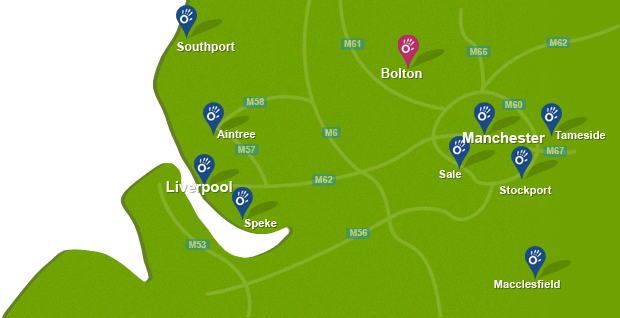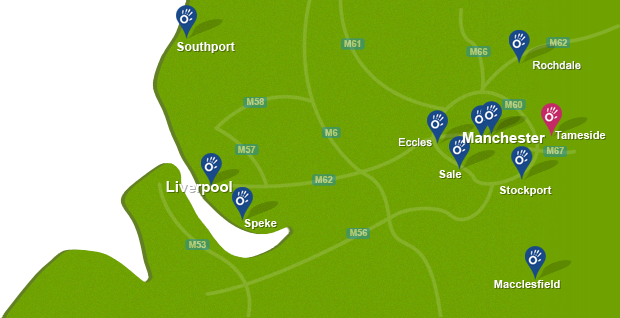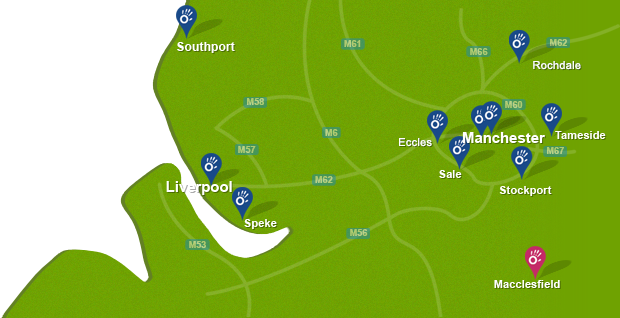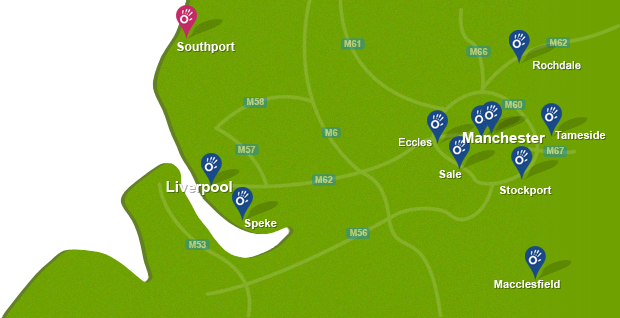What is Posterior Compartment Syndrome?
Posterior Compartment Syndrome is a painful condition occurring when the muscles, nerves and blood vessels out-grow the space within the compartment created by the enclosing sheath. This increases the pressure inside the area and consequently on everything within the compartment causing pain.
 Above: Soft tissue massage applied to soleus muscle by specilaist therapist
Above: Soft tissue massage applied to soleus muscle by specilaist therapistWhat Causes Posterior Compartment Syndrome?
Posterior Compartment Syndrome can be caused by any acceleration movement which involves powerfully pushing off with the feet, like running, kicking, jumping or over-extending the foot by going up onto your heals or onto your tip toes.
Other causes of posterior compartment syndrome resulting in bleeding or swelling in the compartment may include:
- Direct trauma or impact to the back of the lower leg
- Extreme physical activity
- A muscle tear or calf strain
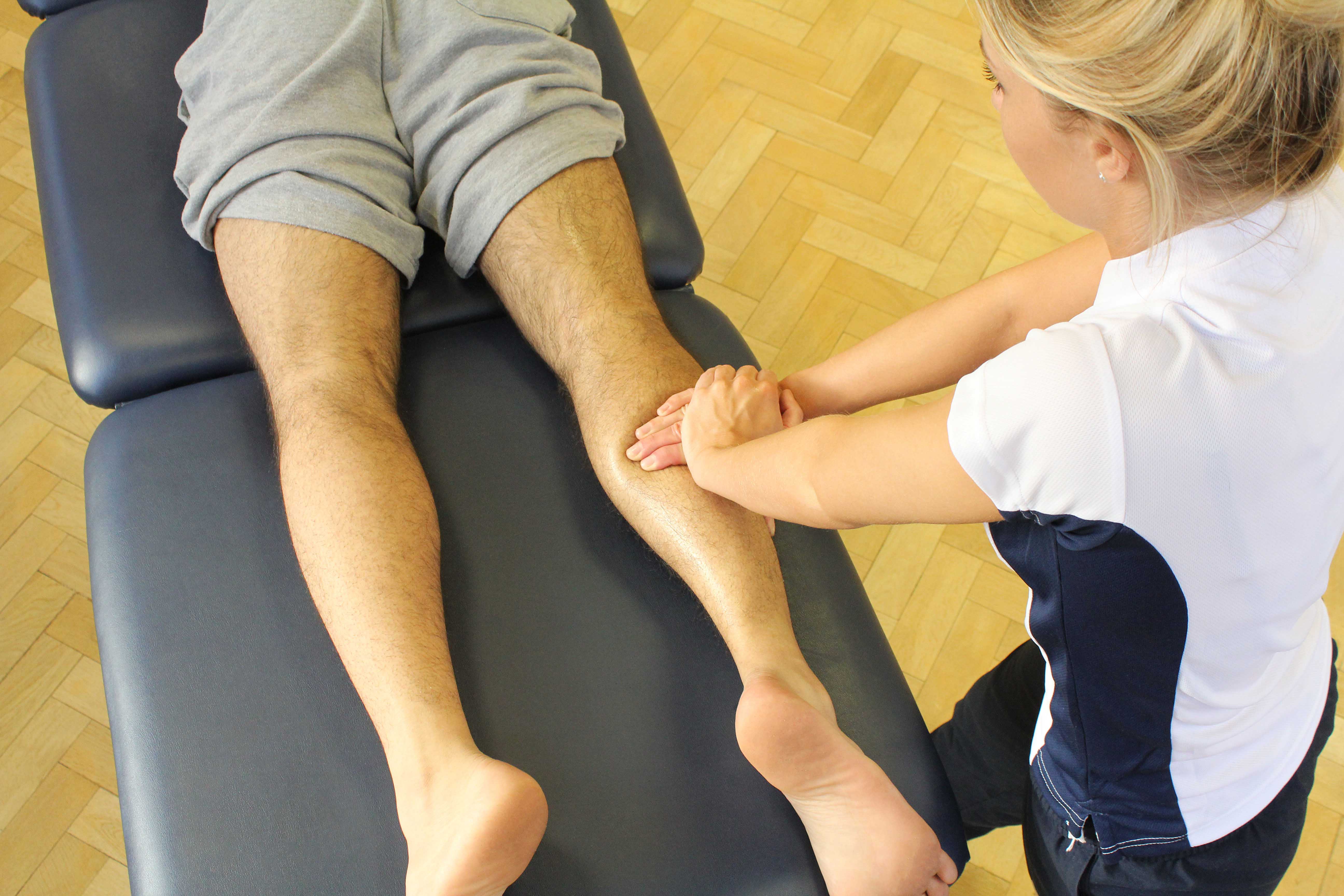 Above: Trigger point massage applied to gastrocnemius muscle by specilaist therapist
Above: Trigger point massage applied to gastrocnemius muscle by specilaist therapistWhat are the symptoms/effects of Posterior Compartment Syndrome?
The main symptoms of posterior compartment syndrome are pain and tightness along the inner aspect of the shin and / or back of the lower leg. These symptoms generally increase with exercise and decrease with rest and can occur in one or both legs.
People may also experience a burning sensation or numbness in the calf and pins and needles in the foot.
Diagnosis of Posterior Compartment Syndrome
A thorough examination by a physiotherapist or doctor will diagnose compartment syndrome.
Physiotherapy treatment for Posterior Compartment Syndrome
Your physiotherapist at Manchester Physio will initially assess your lower leg and then analyse your training methods, running gait and types of shoes to determine any contributory factors. A treatment plan will then be developed tailored to your current symptoms and diagnosis which may include:
- Alternating cold and heat therapy
- Soft-tissue massage of the calf muscles
- Modifying activity program while you recover
- Advice about orthotics and appropriate foot wear
- Mobilisation of the ankle joint
- Taping
- Stretching exercises
- Progressive strengthening exercises to improve balance and strength
- A gradual return to activity program
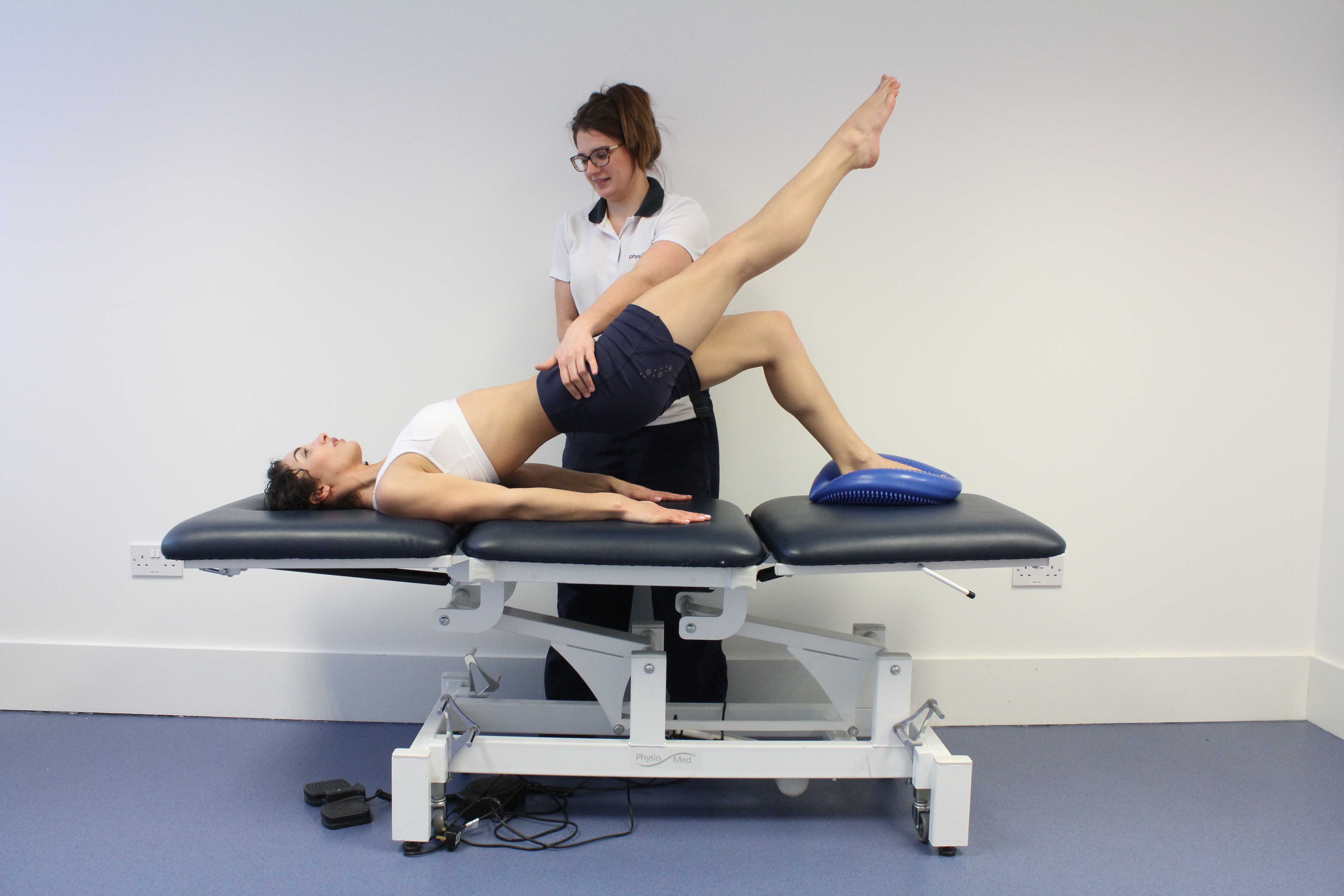 Above: Leg strengthening exercises using squats and a gym ball with hand weights, under supervision of specialist MSK physiotherapist
Above: Leg strengthening exercises using squats and a gym ball with hand weights, under supervision of specialist MSK physiotherapistPhysiotherapy treatment at Manchester Physio will reduce pain and gradually increase muscles strength and flexibility so you can return you to the activities important to you as quickly and as safely as possible.
For more information about how physiotherapy can help you, or to book an assessment please call 0161 883 0077.

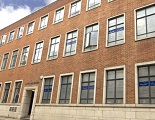
 0800 033 7800
0800 033 7800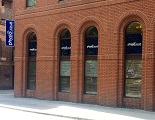

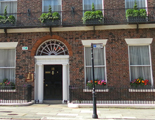







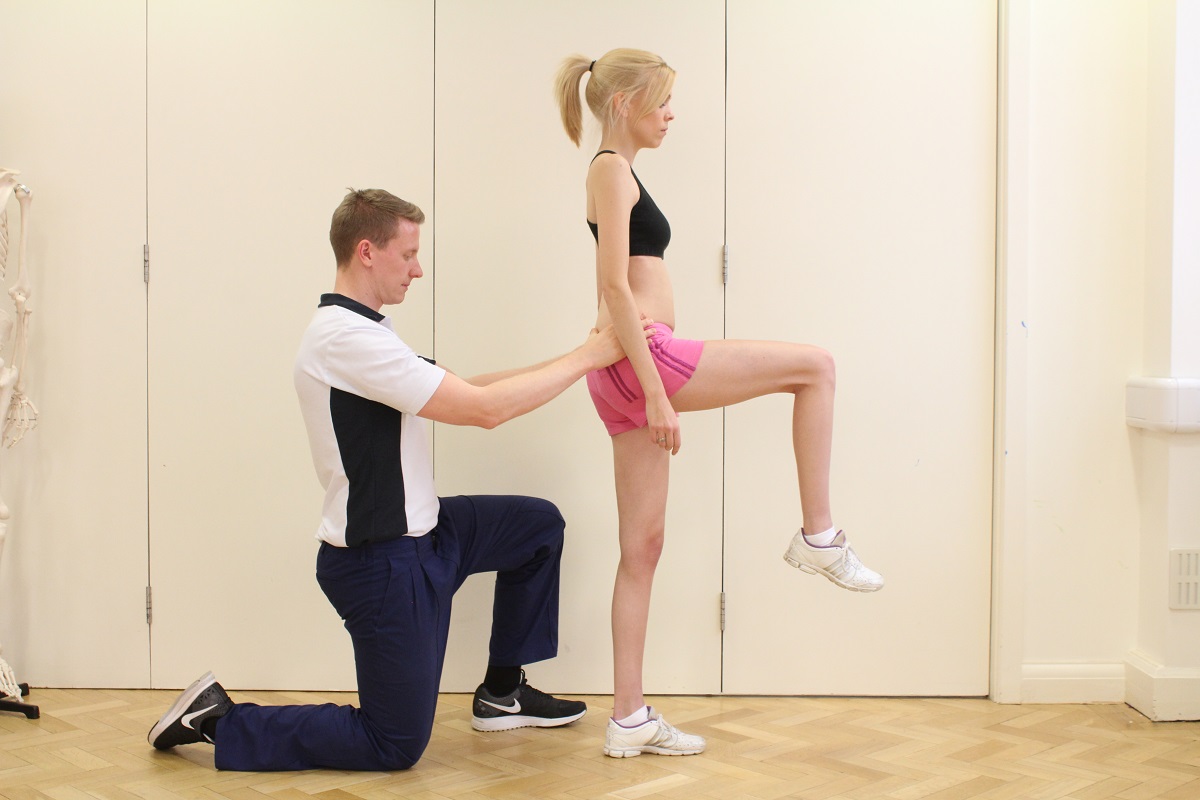
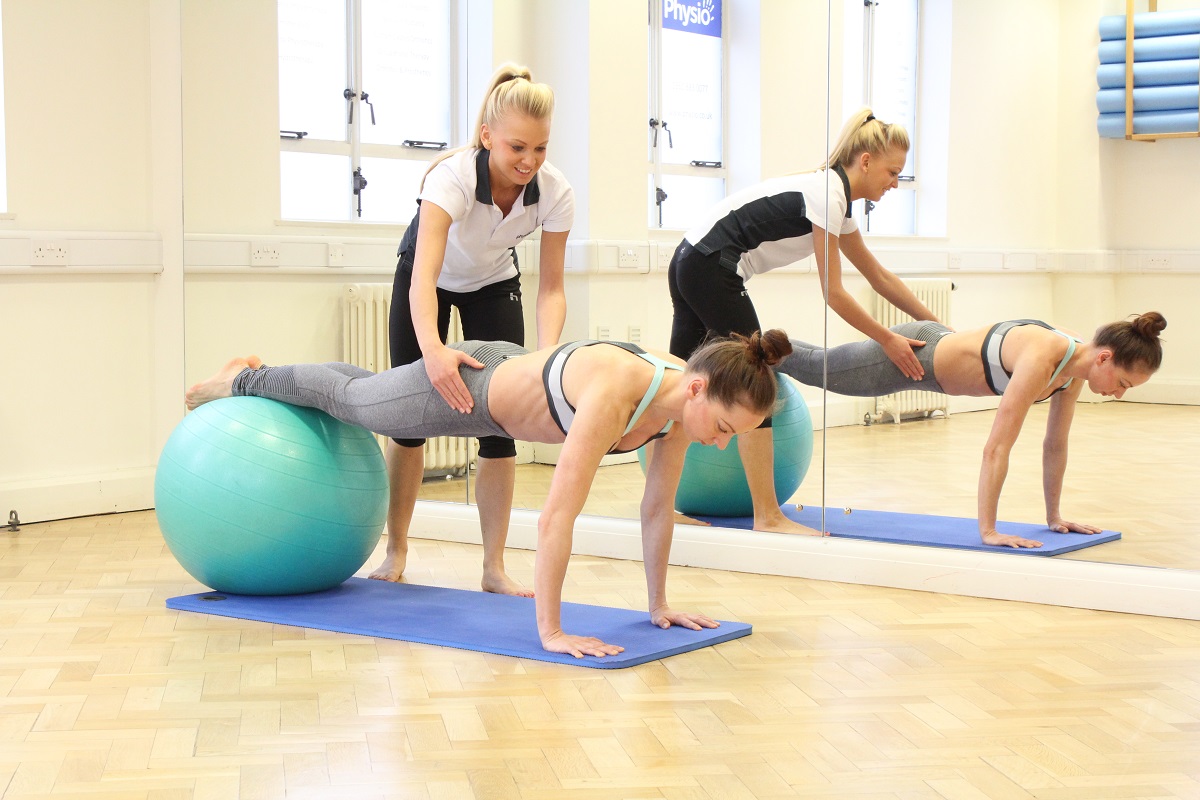
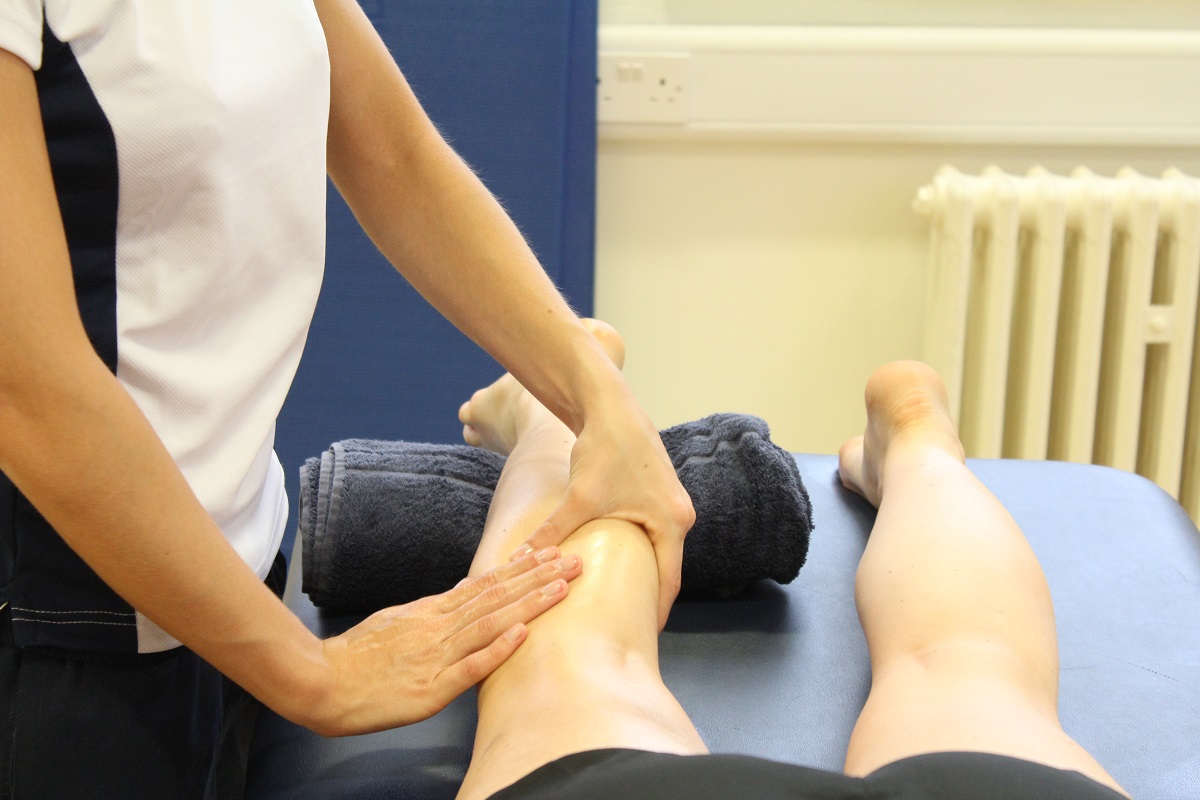
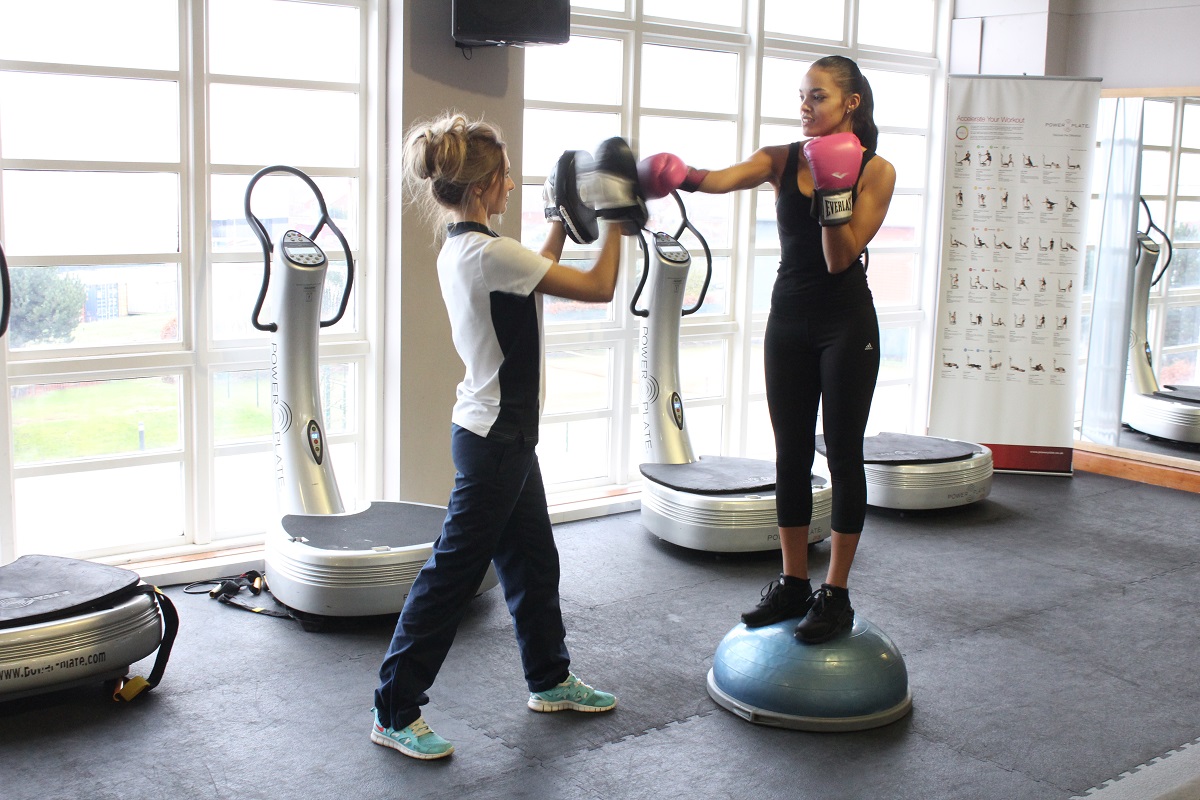


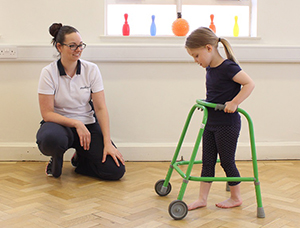
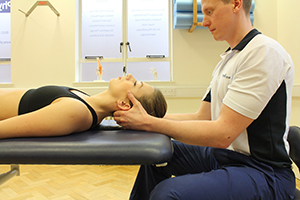
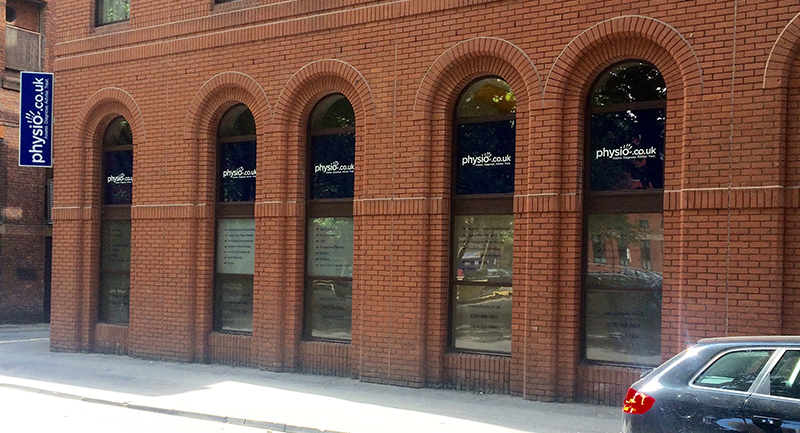
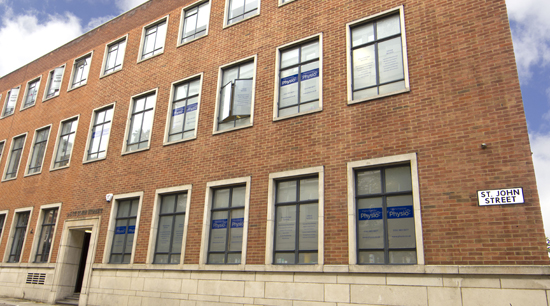


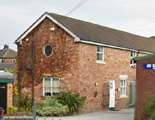
































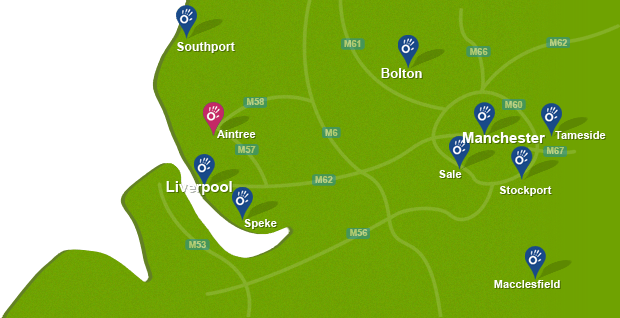

 f
f
